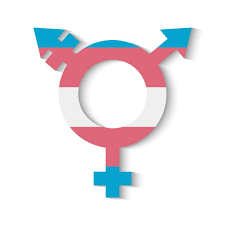In recent years, the visibility of transgender women has increased significantly, thanks to ongoing dialogues surrounding gender identity and the rights of marginalized communities. Understanding who transgender women are and the challenges they face is crucial for fostering empathy and support, and for creating a more inclusive society. This article delves into various aspects of the lives of transgender women, from their experiences with transitioning to the importance of respect and allyship.
Understanding the Basics of Transgender Women Today
Transgender women are individuals who were assigned male at birth but identify and live as women. This gender identity can manifest in numerous ways, and it’s important to recognize that being transgender is about one’s internal sense of gender, not solely about physical appearance or medical procedures. In today’s world, there is growing acceptance and visibility for transgender women, yet they still face a myriad of challenges that can affect their quality of life. Sissy Meaning In English
The conversation surrounding transgender identity is continually evolving, influenced by cultural, social, and political factors. With advancements in awareness and advocacy, more people are beginning to understand and respect the complexities that come with being a transgender woman. However, there remain significant barriers, including discrimination and societal stigmas, that complicate this journey.
The Journey: Transitioning to a New Identity
Transitioning is a deeply personal journey for transgender women and can encompass various elements, including social, legal, and medical changes. Social transition might involve adopting a new name, changing clothing styles, and presenting oneself as their identified gender in everyday life. For many, this step can be liberating and affirming, yet it often comes with challenges, such as fear of rejection from friends and family.
Medical transition may include hormone replacement therapy (HRT) or surgeries, but it’s important to note that not all transgender women choose or have access to these procedures. Each person’s journey is unique, and transition is not a linear process; it can take years and involves continual self-discovery. Support from loved ones and communities plays a significant role in helping transgender women navigate their transition.
Common Misconceptions About Transgender Women
Despite increasing awareness, misconceptions about transgender women persist. One common myth is that transgender women are simply "men in dresses" or that their identity is merely a phase. This misunderstanding undermines the authenticity of their experiences and identity. Being a transgender woman is not about performance or imitation; it is about embracing one’s true self, often after years of struggle and self-discovery.
Another misconception involves the idea that all transgender women undergo surgery or medical procedures. In reality, the transgender experience is diverse, and not every individual chooses or can afford medical interventions. Recognizing the validity of all transgender identities, regardless of medical status, is vital in challenging these stereotypes and promoting understanding.
The Importance of Respecting Pronouns and Names
Respecting an individual’s chosen name and pronouns is a fundamental aspect of acknowledging their identity. For transgender women, using the correct pronouns—she/her—can significantly impact their mental health and well-being. Misgendering can be emotionally distressing and often leads to feelings of invalidation and rejection.
Using the correct name and pronouns fosters an inclusive environment and shows respect for the individual’s identity. It’s a simple act that can have profound effects, affirming their place in society. For allies, being proactive in learning and using the correct pronouns is essential in creating a supportive atmosphere for transgender women.
Health and Well-being: Challenges Transgender Women Face
Transgender women often face serious health disparities and barriers to accessing medical care. Studies show that they experience higher rates of mental health issues, including depression and anxiety, largely due to societal stigma and discrimination. Additionally, many transgender individuals encounter obstacles when seeking gender-affirming healthcare, including a lack of knowledgeable providers and discriminatory practices.
Furthermore, the mental toll of navigating a world that may not accept or validate one’s identity can be significant. Many transgender women seek support from therapy or peer support groups to cope with these challenges. Access to comprehensive and affirming healthcare is critical not only for physical well-being but also for mental health stability.
Celebrating Transgender Women in Popular Culture
In recent years, transgender women have made remarkable strides in popular culture, carving out spaces in film, television, music, and literature. Notable figures like Laverne Cox, Michaela Jaé Rodriguez, and Janet Mock have brought visibility to the transgender community and highlighted the diverse experiences of transgender women. Their contributions have not only paved the way for more representation but have also sparked important conversations about gender identity and acceptance.
This celebration of transgender women in popular culture is crucial as it helps combat stereotypes and fosters a more nuanced understanding of their lives. By showcasing authentic stories and experiences, society can begin to dismantle harmful narratives and encourage empathy. The increasing representation of transgender women in media serves as a source of inspiration and validation for many in the community.
Resources and Support for Transgender Women
There are numerous resources available for transgender women seeking support, information, and community. Organizations such as the Human Rights Campaign, GLAAD, and Trans Lifeline offer vital services ranging from advocacy to mental health support. These organizations provide educational materials about transgender identity and can connect individuals with local resources, including support groups and healthcare providers.
In addition to national organizations, many local LGBTQ+ centers provide support tailored to the needs of transgender women. These centers can create safe spaces for community building and sharing experiences, fostering a sense of belonging in an often isolating environment. Recognizing and utilizing these resources can significantly impact the well-being and empowerment of transgender women.
How to Be an Ally: Tips for Supporting Transgender Women
Being an ally to transgender women involves both active support and a commitment to learning. First and foremost, educate yourself about transgender issues—understanding the nuances of gender identity can inform your interactions and help you challenge misinformation when you encounter it. Listening to the experiences and needs of transgender women is essential; sometimes, the best way to support is simply to be there and provide a safe space for them to share their stories.
Additionally, advocate for transgender rights by supporting policies that protect against discrimination and promote inclusivity. Use your voice to challenge transphobia whenever you see it, whether that’s in conversations with friends or on social media platforms. Small actions can lead to significant changes, and showing solidarity can help create a more accepting society for transgender women.
Understanding and supporting transgender women is vital in our collective journey toward equality and acceptance. By fostering knowledge, respect, and allyship, we can create a more inclusive environment where every individual, regardless of their gender identity, feels seen and valued. Remember, the journey is ongoing, and every step taken in understanding and advocating for transgender women contributes to a broader culture of compassion and solidarity.


